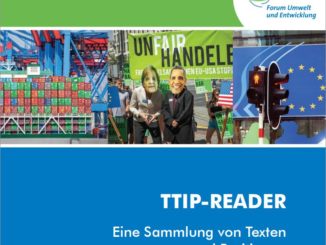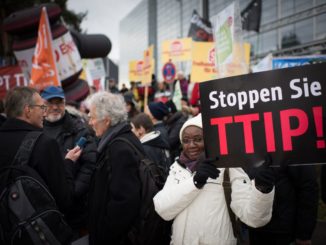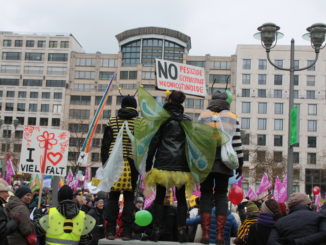
Amended 03/08/2015 00.18 UTC
The current round of TPP negotiations have ended without agreement in Hawaii. This has implications for TTIP – the EU US negotiations – because of the interrelated nature of these deals. Here is brief roundup of perspectives as to why the talks have ground to a halt.
Reuters (01/08/2015)
“Pacific Rim trade ministers failed to clinch a deal on Friday to free up trade between a dozen nations after a dispute flared up over auto trade between Japan and North America, while New Zealand dug in over dairy trade and no agreement was reached on monopoly periods for next-generation drugs…
The talks, which drew about 650 negotiators, 150 journalists and hundreds of stakeholders, had been billed as the last chance to get a deal in time to pass the U.S. Congress this year, before 2016 presidential elections muddy the waters.
It’s Our Future (01/08/2015) (New Zealand based network of activists, academics and interested citizens) were stronger in their language:
“‘The “final” ministerial meeting on the Trans-Pacific Partnership Agreement (TPPA) in Maui has failed. Not opting to stay another day shows the gridlock is serious and potentially intractable’, according to University of Auckland law professor Jane Kelsey.
‘Everyone is blaming each other in Maui’, Kelsey said. ‘But the underlying reason for the gridlock is the domestic opposition in almost all the TPPA countries.’
‘People simply don’t believe a deal that raises the price of medicines and handcuffs the right of governments to regulate is in their national interests’.
‘Despite erecting a shroud of secrecy around the negotiations, politicians know they can’t sign a final deal that they can’t sell at home.’”
CBC (Canada) (01/08/2015)
blamed “the ‘big four’ economies of the US, Canada, Japan and Mexico…
Concerns around automotives, data protection of biologics, dairy and sugar remain sticking points, but they are not impossible to resolve…”





